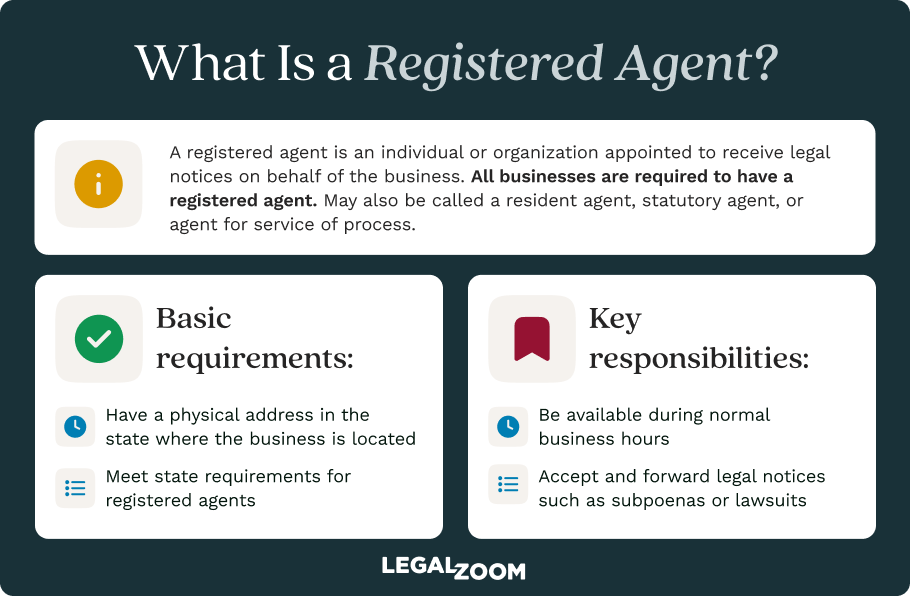When you incorporate in New York, you create a distinct legal entity that exists separately from its owners (the shareholders). That means that the corporation can own property, enter contracts, and sue and be sued all in its own name.
Similar to a limited liability company (LLC), a corporation can generally protect shareholder’s personal assets from business debts and liabilities. Unlike an LLC, a corporation issues stock certificates, which can attract investors, but operates under a more formal structure with strict management requirements.
New York corporations also benefit from numerous tax incentives for qualified businesses, access to a wide and diverse customer base, and proximity to global markets.
Key takeaways
- A New York corporation provides liability protection and potential tax advantages for business owners.
- You must file a certificate of incorporation with the New York Department of State. The standard filing fee is $125.
- The Department of State must serve as your registered agent, but you can also appoint your own agent to serve as your forwarding address. This helps keep your address off any public listings.
- After filing, you must hold an organizational meeting to adopt bylaws and elect directors.
- Ongoing compliance includes biennial reports and tax filing.
Why incorporate in New York?
New York offers several advantages for businesses that choose to incorporate here.
- Strong legal framework. New York's Business Corporation Law provides comprehensive protection policies and clear management guidelines.
- Access to capital markets. New York's proximity to major financial centers makes it particularly attractive to investors.
- Established business infrastructure. The Empire State houses extensive professional services, banking, and commercial support systems.
- Credibility. A New York corporation often carries prestige and enhanced credibility with customers, suppliers, and lenders.
- Flexibility. New York law allows various stock structures and corporate arrangements.
- Limited liability protection. Corporations offer some asset protection for shareholders, directors, and officers.
How to form a corporation in New York
To form a corporation in New York, you’ll need to file a certificate of incorporation, or articles of incorporation, with the NY Department of State (DoS). This document creates your business’ legal existence, but requires you to gather some important information first.
You can register using LegalZoom or do it yourself by following the steps below. There are also a few more steps that explain
Step 1: Confirm your business name is available
Before you file the certificate of incorporation, make sure your desired business name is available and meets New York's requirements:
- It must contain the words "incorporated," "corporation," or "limited," or the abbreviations "inc.," "corp.," or "ltd.".
- It must be distinguishable from any corporation, limited liability company, or limited partnership already on file with the New York Department of State.
- It can’t contain words prohibited by Section 301(a)(1) of the Business Corporation Law of New York State.
- It can’t imply governmental affiliation or suggest activities requiring special licensing without proper authorization.
You can check if the name is available by doing a New York business entity search. The Department of State’s online database allows you to see if another business has already registered in New York under your desired name.
If the name’s available, you have the option to file a name reservation to hold it for up to 60 days. This gives you time to gather everything else you need to file the certificate of incorporation. To file, fill out the application and mail it along with a $20 filing fee to this address:
NYS Department of State
Division of Corporations
One Commerce Plaza
99 Washington Avenue
Albany, NY 12231
You can pay by money order or by credit card by also filling out and submitting a card authorization form. The DoS will send you a filing receipt if they accept your application. Don’t forget, you’ll need to attach this receipt to your certificate of incorporation when you file.
Step 2: Designate a registered agent
Unlike most states, New York requires corporations to designate the Secretary of State (SoS) as their agent for service of process, or registered agent. This role is responsible for accepting legal documents, such as lawsuits, on behalf of the corporation.
Your certificate of incorporation needs to include a U.S. street address where the Secretary of State can forward copies of any legal documents it receives. If a lawsuit gets lost in the mail, the corporation can miss its chance to defend itself in court, leading to a default judgment. So, it’s important to make sure the address you provide is up-to-date. You also have the option to provide an email address where the SoS can notify you of any documents received.

Step 3: Decide on stock structure
Your certificate of incorporation also needs to specify the corporation's authorized stock structure. The DoS provides a standardized certificate form with one class of 200 common shares with no par value. Par value refers to the minimum value of each stock regardless of market value. Classes of stock are different types of shares that provide different privileges, such as voting rights and/or higher dividends.
You have the option to rewrite this section with your preferred stock structure as long as it includes the following information:
- For one class of shares, include the total number of authorized shares and the par value of those shares. The par value can be “$0,” or “no par value.”
- For more than one class of shares, state the number of shares for each class and the par value of those shares. Again, the par value can be “$0,” or “no par value.”
Step 4: File the certificate of incorporation
According to New York law, your corporation exists once you file your certificate of incorporation. Here’s what you’ll need to include:
- Name of the corporation
- Business purpose (fields related to child services, education, healthcare, and substance abuse require additional approval from the relevant agency)
- County where your office is located (Manhattan is New York County, Brooklyn is Kings County, and Staten Island is Richmond County. The Bronx and Queens refer to both the borough and the county)
- Stock structure
- Street address and email for service of process copies and notifications
- Incorporator’s name, address, and signature (the person creating the corporation)
- Filer’s name and mailing address
The filing fee is $125. Submit your form online through the DoS’ online filing portal or send it along with the filing fee and name reservation receipt (if applicable) to the following address:
NYS Department of State
Division of Corporations
One Commerce Plaza
99 Washington Avenue
Albany, NY 12231
Step 5: Hold an organizational meeting and adopt bylaws
At this stage, you’ve already formed your corporation. But, there are a few more critical steps to get your business operational. After the Department of State approves your certificate of incorporation, the incorporators must hold an organizational meeting to do the following:
- Adopt bylaws
- Elect directors
- Appoint officers
- Issue initial stock certificates
- Adopt corporate resolutions
- Authorize corporate bank accounts
Corporate bylaws outline the internal rules and procedures for operating your corporation. While bylaws are not filed with the Department of State, they must be adopted after incorporation.
These are some common provisions to consider:
- Number of directors and officers
- Duties and responsibilities of directors and officers
- Procedures for shareholder meetings
- Voting procedures and quorum requirements
- Stock transfer restrictions
- Amendment procedures
- Indemnification provisions
Step 6: Obtain state and federal tax IDs
Next, you’ll need to apply for an employer identification number (EIN). An EIN is a federal tax ID that your corporation requires in order to file federal taxes. It's also necessary for opening a business bank account, hiring employees, and obtaining certain licenses and permits.
You can apply for free online through the Internal Revenue Service (IRS) or have LegalZoom handle it for you.
The NYS Department of Taxation and Finance (TAX) will create a state tax account for your business once it’s formed. You’ll receive a form that contains your temporary state identification number, file number, and current filing period to the address you listed on your certificate. Once you have the form, you must contact TAX to report your EIN.
Step 7: Open a corporate bank account
This step is helpful to maintain your limited liability status and protect your personal assets. A separate business bank account will also help ensure your business keeps proper financial records.
Here’s what you’ll generally need:
- Certificate of incorporation
- EIN
- Corporate bylaws
- Board resolution authorizing account opening
- Identification for authorized signers
Next steps and ongoing compliance in New York
In addition to keeping up with taxes and licenses, domestic corporations need to file a biennial statement to maintain compliance with the state. The statement is due every two years within the month that your business incorporated. For example, if you filed your certificate on March 14, your first biennial report is due two years later in March.
The purpose of this report is to update the DoS on your business’ basic information, including the address where the Department should forward service of process. The filing fee is $9, and you can file it online through the DoS’ website.
Start your New York corporation with LegalZoom
There's a reason more than four million businesses have chosen LegalZoom to help them get off the ground. Our incorporation service can take care of everything you need to form your New York corporation.
Here are some of the perks:
- Streamlined process. LegalZoom combines technology and experience to take the guesswork (and paperwork) out of business formation. Our online process can help you start your corporation in minutes.
- Expert support. All of our corporation formation packages include a meeting with a small business specialist and a consultation from 1-800Accountant.
- A full suite of services. Beyond just incorporation services, LegalZoom supports all your business filing needs. We provide year-round compliance management, bookkeeping tools, access to business attorneys, registered agent services, and trademark registration.
FAQs about New York incorporation
How much does it cost to incorporate in New York?
The certificate of incorporation that forms your NY corporation costs $125. However, the total cost may vary depending on certain factors, such as whether or not you also file a $20 name reservation or request a $10 certified copy of the certificate.
Is a certificate of incorporation the same as articles of incorporation in New York?
Yes, in New York, the terms "certificate of incorporation" and "articles of incorporation" refer to the same document. New York officially uses "certificate of incorporation" in its statutes and forms, but both terms mean the founding document that creates the corporation.
How do I get a copy or certified copy of my certificate of incorporation?
You can elect to also apply for a certified copy when you file your certificate of incorporation. The fee for a certified copy is $10.
What's the difference between a New York corporation and an LLC?
Both corporations and LLCs are separate legal entities from their owners and offer limited protection from legal liability for business debts and lawsuits. However, there are some of the key differences between these two business structures.
Here are some of the main elements of a corporation:
- Issues stock certificates
- Formal structure with directors, officers, and shareholders
- May pay taxes on the same income at both the corporate and individual level
- More complex compliance requirements
- Easier to raise capital from investors
Here are some of the main elements of an LLC:
- Issues membership interests
- Flexible management structure
- Pass-through taxation by default, but can elect to pay corporate taxes instead
- Simpler compliance requirements
- More operational flexibility
Can I change my corporation's name after filing?
Yes, you can change your corporation's name by filing a certificate of amendment with the New York Department of State. The filing fee is $60.
Do I need an attorney to incorporate in New York?
No, NY state doesn’t require you to have an attorney to incorporate in the state. But, it’s often recommended to consult an attorney before you file, especially for complex business structures or specific legal questions.
How long does a New York corporation last?
Unless you specify otherwise in the certificate of incorporation, New York corporations have perpetual existence. That means the corporation continues until it is voluntarily dissolved by the shareholders or involuntarily dissolved by the state for non-compliance.
Jane Haskins, Esq. contributed to this article.



